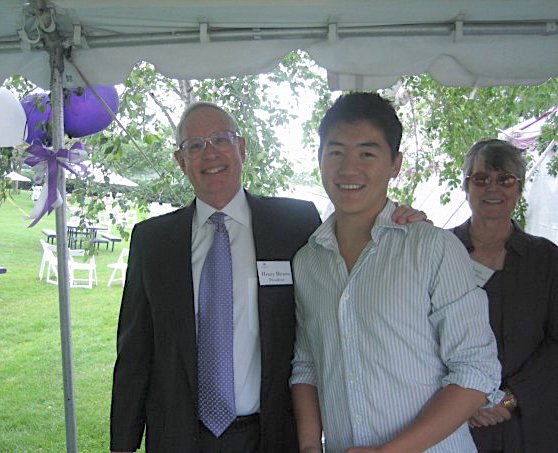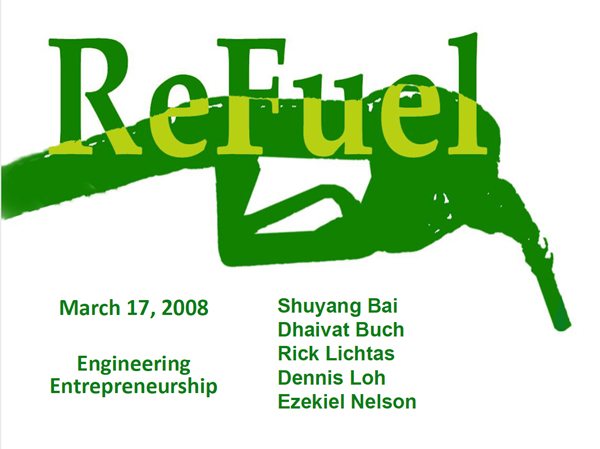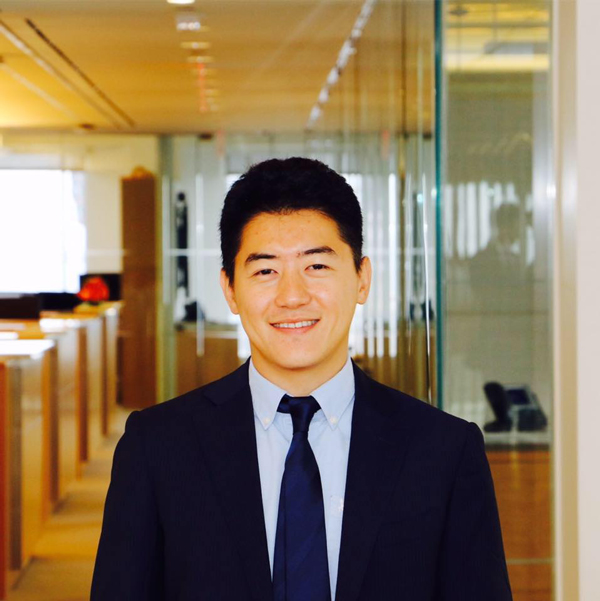Reflections from a McCormick Industrial Engineer on Wall Street
While 2007 may have marked the beginning of the end for the bull market, the investment banking job market was as fiercely competitive as ever. I still remember a final round interview I had in New York with ten other Ivy League peers that year. Unlike the other candidates with liberal arts or finance backgrounds, I was the only engineering student. The interviewer asked me what Industrial Engineering (IE) was. We spent most of the interview talking about my class project to design and market customized toys for special needs children. In the end, I was one of two lucky candidates who received a job offer.

Looking back, it makes sense that a senior investment banker would value my engineering experience in a recruitment pool filled with talented candidates. In the deal-making world, I have learned that you win by truly understanding what keeps clients up at night and by creating value through providing effective strategies that help solve clients' thorniest headaches. Though I didn’t realize it as a 21-year-old in 2007, being an IE major trained to solve real-world problems and think from the “ownership angle” gave me an advantage over other finance and liberal arts majors seeking a place in the finance world.
What makes Industrial Engineering at McCormick special is the practical training to solve everyday problems that is incorporated into the core of the degree. The countless group project hours spent at the IE lab by IE majors may have taken time away from other campus activities, but the learning and camaraderie earned doing these activities well-compensated for any “Fear of Missing Out” I experienced.
During my senior year, the IE curriculum became even more interesting. When I took Engineering Entrepreneurship (ENTREP/IEMS 325), I already had some practical work experience under my belt as I’d spent the summer prior working on the initial public offering of a well-known Asian sports apparel company. The beginning of the internship was tough given my lack of financial knowledge. I had to scramble through unfamiliar and fancy-sounding terms such as “risk premium,” “synergies,” and “net present value” while working a 90-hour work week.
By the end of that summer internship, I had developed much clearer ideas on how company valuation and the broader capital market functioned, but I was still not systematically trained on the subject matter. What made Engineering Entrepreneurship with Professor Mark Werwath especially memorable to me was its comprehensive deep-dive into key financial concepts and the opportunity the course gave students to apply these learnings to a real-world business venture. My overarching takeaway from the course was how to build a stellar business plan - from creating a value proposition and sizing the market, to testing prototypes and appropriating the right valuation for the business. I would eventually come across these concepts again in my M.B.A. classes years later.
In Engineering Entrepreneurship, I worked with four other classmates on the idea of turning used vegetable oil from local restaurants into commercially-usable biofuels. Our team spent weeks interviewing restaurants and crunching numbers to draft a viable business case and confirm our assumption that food waste could be valuable fuel.

ReFuel, our biofuel business concept, was a success, not only from a classroom perspective (we received an A), but also in the way it helped me to build a bridge between financial statements in investment banking with financial statements in real life. Each number on a statement tells a story; we understand that story much better by being the creator and enabler of that number.
ENTREP 325 became the capstone to my IE education. I vividly remember our final Engineering Entrepreneurship presentation before a visiting venture capitalist. We gave such a convincing answer as to why cash flow of our business would turn positive by Year Three and why the Net Present Value (NPV) would turn positive by Year Five that our team all considered abandoning our formal job offers—for a second or two.
In the worlds of investment banking, private equity, and public equity investing, learning how to think like a business owner makes you a better advisor or investor. At Baron Capital in New York, my current work involves deploying hundreds of millions of dollars to technology companies in emerging markets such as China and India. I evaluate companies based on their long-term growth potential and their ability to compound investment returns for shareholders. The centerpiece of my work is identifying elements of a business which may have been inefficiently priced by the market. In other words, I try to uncover what’s misunderstood about a business and appropriate it the value it deserves.
Though all investors have access to the same public information, an investor who asks the right questions and aligns with a company’s management has a competitive edge. CEOs share more of their vision with investors who can demonstrate deep know-how of their businesses. More importantly, the ability to think like an owner helps an investor to focus on the long-term instead of being distracted by short-term “noise.” This long-term focus is crucial as it takes time for value to be created and reflected in a company’s market price. The ability to create a business, even at the idea level, trains us to develop a bottom-up understanding of key business drivers. For all of these reasons, experience in entrepreneurship is extremely valuable to investors. In summary, my work on the ReFuel project trained me to become a better investor.
At my 10-year reunion this October, I found out about the Farley Center during my visit to campus. Farley Center’s role in combining Northwestern’s best-in-class resources to promote entrepreneurship beyond the classroom makes complete sense. When our team finished the ReFuel project, we felt an abrupt end to 10-weeks of hard work. Having a dedicated ‘center-of-excellence’ like Farley Center to incubate and support Northwestern innovation would have no doubt helped our team take Refuel to a higher level.
Though I wish Farley Center had existed during my years at Northwestern, what I learned in ENTREP 325, together with the broader McCormick training I received, turned out to be all I needed to build a well-rounded skill set for graduate school and a career in finance.

As an alumnus, it’s gratifying to see McCormick making strides to become a globally preeminent engineering program. My own hope is to launch an investment fund that supports innovative businesses globally in the near future. In the meantime, I know I will be seeing more McCormick alumni ringing the opening bell on Nasdaq.
